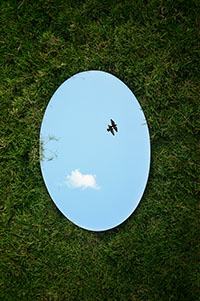Bring your perspectives on how to "Describe Life" to the 7th annual event on TaxonWorks, its community, and the broader world of biodiversity informatics.
What
Our 6th TaxonWorks Together 19-21 May 2026. Join us for 3 days of activities centered around building the collective TaxonWorks community within the broader context of biodiversity informatics around the world, highlighting what's new, changed, and on the horizon. Activities range from highly guided, to un-conference style, with informational (demos, new features, participant presentations) and conversational (e.g. round-table, Q & A) opportunities mixed throughout. As always, we invite new audiences to join us to gather insights for tailoring future directions, our topics will range from those involving TaxonWorks directly (how can we improve) to grand-challenges facing or collective communities (e.g. data quality, semantics and standards, sustaining communities, agency).
Expect lots of opportunities to ask questions, meet others, and to contribute the conversation, your feedback and contributions will make a difference.
When
19 - 21st May 2026
- See Schedule.
- Here already? Please add your event idea for TWTogether 2026 (click "New Issue").
- Can't wait to participate? If you want to share a longer perspective at TWT 2026 on the role of taxon pages or how the process of taxonomic circumscription might evolve propose it to us! See Contact us.
- Now! Plan your 3-minutes 1 slide presentation. Each day an open session where you can emphasize what's important to your biodiversity informatics world, whether TaxonWorks related or not.
How
All sessions virtual (Zoom) and free to attend. Registration is required. Space may be limited.
Do more
Who
Taxonomists, students, ecologists, curators, collection managers, software developers, biodiversity information scientists, para-taxonomists. If you have questions about TaxonWorks this is a great time to ask them. If you have a vision to share, this is the place. Whether you are very familiar with TaxonWorks or new to our community, all are welcome.
Speakers

Schedule
Contact us! If you would like to participate, we'll discuss with you how you might fit in.
May 19th - To be defined
Time expressed in your local timezone (UTC)To be defined.
May 20th - To be defined
Time expressed in your local timezone (UTC)To be defined.
May 21st - To be defined
Time expressed in your local timezone (UTC)To be defined.
Awards
The third TaxonWorks Annual Awards! To help celebrate over 11 years of development behind TaxonWorks and its community we look forward to this fun light-hearted event that recognizes the diverse contributions to our community. We ask anyone connected to our network to nominate folks. Winners all receive TaxonWorks swag. Please join us in congratulating everyone and thanks for your nominations and awardee updates coming from the broader community.
Contact
Send email to dlpaulillinoisedu or chat (Matrix/Element or Slack, both rooms are linked) with a member of the Species File Group.